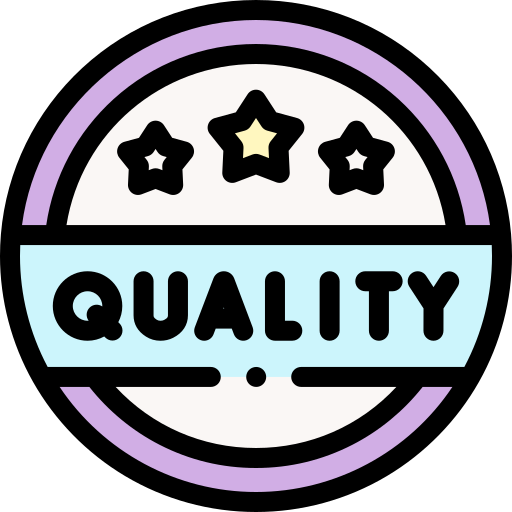Most important certifications for a Civil Engineer are listed in this guide for Civil Engineers. Also check our post on is civil engineering hard and the career path of Civil Engineers.
Important Certifications for a Civil Engineer in Project Management

Project Management is one of the most important Civil Engineering area of expertise. There are several certifications in the field of Civil Engineering Management. Additionally, there are several software of Project Management for Civil Engineers.
- PMP: Project Management Professional. The Project Management Professional (PMP)® certification is the most widely recognised project management credential in the world. The PMP® certification now includes predictive, agile, and hybrid approaches, demonstrating project leadership experience and expertise in any mode of operation. It helps firms locate the people they need to work smarter and perform better, and it boosts project leaders’ careers across industries.
- PgMP: Program Management Professional (PgMP). You coordinate the management of various, connected projects, resulting in benefits that would not be possible if the projects were managed independently. Your ability to lead is crucial. According to our 2015 Pulse of the Profession® research, an organization’s projects are considerably more effective with programme management maturity than without it – 76 per cent vs 54 per cent. The Program Management Professional (PgMP)® designation is a visible indicator of advanced expertise and skill, and it gives you a significant advantage in the job market.
- CAPM: Certified Associate in Project Management (CAPM). The Capital Asset Pricing Model (CAPM) is a mathematical model that describes the relationship between systematic risk and expected return for assets, especially equities. The CAPM model is commonly used in finance to price hazardous securities and generate predicted returns for assets based on their risk and cost of capital.
- PMI-RMP: PMI Risk Management Professional (PMI-RMP). The PMI Risk Management Professional (PMI-RMP)® certification recognises your ability to recognise and assess project risks, manage threats, and seize opportunities. The PMI-RMP will authenticate your particular skills and help you stand out to employers, stakeholders, and peers if you’re ready for more recognition.
- PMI-SP: PMI Scheduling Professional (PMI-SP). The Scheduling Professional (PMI-SP) credential acknowledges the requirement for a project scheduling specialist.
- MPM: Master Project Manager. What exactly is MPM? Master Project Manager (MPM) is a unique entry-level graduate qualification for project managers who work in both business and technical domains.
- CPM (Certified Project Manager). What does it mean to be CPM certified? Certified Property Managers® (CPM®) are specialists in real estate managers who are at the pinnacle of their field. 70% of persons with the CPM® accreditation are in the top management roles in their businesses.
- RIBA Certificate in Construction Project Management. RIBA Validation is a peer evaluation mechanism that ensures that architecture education meets internationally recognised basic standards and supports quality and variety in student accomplishment.
- Certified Project Director. A Certified Project Director (CPD) has demonstrated leadership skills in managing various, complex projects, programmes, and work portfolios.
- Portfolio Management Professional (PfMP). Your advanced expertise in the coordinated administration of one or more portfolios to meet strategic objectives earns you the Portfolio Management Professional (PfMP) designation.
- PMI Professional in Business Analysis (PMI-PBA). PMI offers a comprehensive certification programme for practitioners of all educational and experience levels. There are now eight certifications that go through a rigorous development and maintenance process.
- PMI Agile Certified Practitioner (PMI-ACP). The PMI Agile Certified Practitioner (PMI-ACP) credential formally acknowledges your understanding of agile principles and ability to apply agile practices.
- PMITS: Project Management in IT Security. PMITS (EC-Council Scheme Management in Information Technology Security) is an E-Business certification project run by the European Commission. The goal of this project is to look into how to handle IT security projects. This project improves the success rate of both corporations and IT managers in any IT project they undertake.
- CPMP: Certified Project Management Practitioner. Professionals who want to improve their marketing skills can enrol in the AiCi authorised CMP® programme. The CMP® programme is a widely known and well-respected indicator of professional and academic success in the field.
- CSM: Certified Scrum Master. CSM is an entry-level certification that teaches professionals about Scrum’s methodology and ideas, such as team performance, responsibility, and iterative progress.
- PRINCE2 Foundation/PRINCE2 Practitioner. PRINCE2 is a process-based project management methodology that will teach you the core skills you’ll need to be a successful project manager. PRojects IN Controlled Environments is a term that is used and understood all over the world.
- CompTIA Project+ Certification. The Computing Technology Industry Association (CompTIA) is the world’s premier source of vendor-neutral IT certifications.
- Professional Certificate in Financial Planning (PCFP).
- Associate in Project Management. The Associate in Project Management (APM)TM credential is a globally recognised project management credential.
Important certifications for a Civil Engineer in Cost Engineering.

- Professional Cost Estimator/ Analyst (PCEA®). The PCEA® certification is an entry-level credential for those who are new to cost-related professions. To be considered, you must have two years of expertise in cost, budgeting, finance, accounting, or a related profession.
- Certified Estimating Professional (CEP). The Certification of Suitability (CEP) is a document that confirms that active pharmaceutical ingredients (API) or pharmaceutical ingredients comply with the requirements outlined in the European Pharmacopoeia monograph (EP).
- Certified Professional Estimator (CPE). CPE is a requirement for Certified Public Accountants (CPAs), and it is designed to assist them to maintain their competency and skill sets as providers of professional accounting services.
- Certified Value Specialist (CVS). The SAVE International Certification Program’s Certified Value Specialist (CVS) is the highest level of certification available.
- Certified Cost Technician (CCT). Cisco Certified Technicians (CCT) diagnose, restore, repair, and replace critical Cisco networking and system equipment at customer locations.
- International Society of Parametric Analysts (ISPA). ISPA International Certificates of Competency are internationally recognised as meeting the standards for bareboat charter and are perfect for those interested in pursuing professions in the Pleasure Craft Industry or simply wanting to live the dream of owning a boat.
- Earned Value Professional (EVP). The seasoned EVP will have extensive expertise interpreting EV data/metrics and the ability to communicate coherently and effectively.
- Society of Cost Estimating and Analysis (SCEA). Enterprise architects that are responsible for architecting J2EE technology should take the Sun Certified Enterprise Architect for J2EE Technology certification exam.
- Planning & Scheduling Professional (PSP). The Physical Security Professional (PSP) certification validates your understanding of physical security assessments, application, design, and integration of physical security systems, and security measure implementation.
- Certified Forensic Claims Consultant. In the construction dispute resolution and litigation assistance fields, a CFCC is an experienced claims specialist and testifying expert. The CFCC represents practitioners and specialists who meet a demanding set of claims preparation and dispute resolution criteria, including experience, education, and compliance with industry-accepted ethical requirements, focusing on claims arising from design and construction projects in countries with a common law or mixed law, where common law is part of mixed law.
- Certified Scheduling Technician. All about project Scheduling that helps schedule projects professionally.
- Certified Cost Professional. Cost Estimation certificate helps Cost Surveying.
- Certified Quantity Surveyor (CQS). Another quantity surveying professional certificate to enhance your CV skills.
- Certified Cost Engineer (CCE). This certificate is another under the category of Engineering Projects cost certifications.
- Certified Parametric Practitioner (CPP). These certificates are similar to merit badges in scouting in that they serve as proof that the possessor possesses a specific level of proficiency in the subject area. This examination will assist you in determining which certifications are appropriate for you and the requirements for obtaining a certification.
- Certified Cost Consultant (CCC). This is another Cost certification for Civil Engineers and other Engineering degree holders.
- Decision & Risk Management Professional. Just learn how to manage risk and take decisions with little to no losses.
Important certifications for a Civil Engineer in Quality Engineering

- Certified Biomedical Auditor (CBA). The Certified Biomedical Auditor is a professional who is familiar with the principles of standards, regulations, directives, and guidance for auditing a biomedical system while employing various tools and techniques to examine, question, evaluate, and report on the system’s adequacies and deficiencies.
- Certified Calibration Technician (CCT). The Certified Calibration Technician ensures that electrical, mechanical, electromechanical, analytical, and electronic measuring, recording, and signaling devices and equipment meet established standards by testing, calibrating, maintaining, and repairing them.
- Certified HACCP (Food Safety) Auditor (CHA). HACCP is an international standard that defines the parameters for effective food safety control. It is based on the following seven principles: Analyze food dangers that are biological, chemical, or physical.
- Certified Manager of Quality / Organizational Excellence (CMQ/OE). A Certified Manager of Quality/Organizational Excellence oversees and develops team efforts to establish and monitor customer/supplier relationships, as well as provides support and other services.
- Certified Pharmaceutical GMP Professional (CPGP). The Certified Pharmaceutical GMP Professional is familiar with the pharmaceutical industry’s good manufacturing procedures (GMP) as regulated and governed by national and international bodies. This includes finished human and veterinary drugs and biologics, ectoparasiticides, and dietary supplements (also known as nutraceuticals), as well as their component raw materials (including active pharmaceutical ingredients (APIs) and excipients), packaging, and labelling operations, which are all regulated as drug products.
- Certified Quality Auditor (CQA). This is a general certification to audit the quality of projects.
- Certified Quality Engineer (CQE). This is another inspection or quality-related certification.
- Certified Quality Improvement Associate. This certificate allows the learner to know the insights on bringing improvements in a project etc.
- Certified Quality Process Analyst. This is a certification on the ongoing quality analysis of a project.
- Certified Reliability Engineer. This is to ensure the factor of reliability.
- Certified Supplier Quality Professional. This helps manage the supply chain.
- Certified Quality Technician. Certified Quality Technicians (CQT) are paraprofessionals who solve quality problems for process control.
- Certified Quality Inspector. Another associate certification for quality inspection.
- NSW Quality Management Systems Accreditation
- Certified Six Sigma Green Belt (CSSGB)
- Construction Quality Management for Contractors (CQM-C)
Important certifications for a Civil Engineer in Safety Engineering

- Certified Safety Professional (CSP)
- Associate Safety Professional (ASP)
- Occupational Health & Safety Technologist (OHST)
- Construction Health & Safety Technician (CHST)
- Certified Environmental Safety & Health Trainer (CET)
- Safety Trained Supervisor in Construction (STSC)
- Certified Hazardous Materials Manager (CHMM)
- Advanced Safety Management (ASM)
- Canadian Registered Safety Professional (CRSP).
- Certified Industrial Hygienist® (CIH®)
- Chartered Member of the Institution of Occupational Safety and Health (CMIOSH)
- The Certified Environmental, Safety & Health Trainer or CET.
- Graduate Safety Practitioner (GSP)
- Safety Management Specialists (SMS)
- NEBOSH: National Examination Board in Occupational Safety and Health Construction Certificate
- NEBOSH Oil and Gas Certificate.
- Certified Safety and Health Manager (CSHM) Certificate.
- Advanced Construction Safety and Health Certificate
- Disaster and Emergency Management Certificate
Most Important certifications for a Civil Engineer in Engineering Design:
- Certified Design Drafter(CDD)
- Leadership in Energy and Environmental Design certification (LEED)
- Certified Pavement Design/Analysis (CPD)
- National Council of Building Designer Certification (NCBDC)
- Structure Design Certificate (SDC)
- Certified Organization Design Professional Program (CODEP)
- DESIGN OF STEEL-CONCRETE COMPOSITE STRUCTURES USING EUROCODE (DSCCS)
- Certified professional building designers (CPBD)
- Certificate Of Proficiency In Civil Design Technology
- Certification Of Plumbing Design
- High-Performance Building Design Professional (HBDP)
- Autodesk Certified Professional (ACP)


